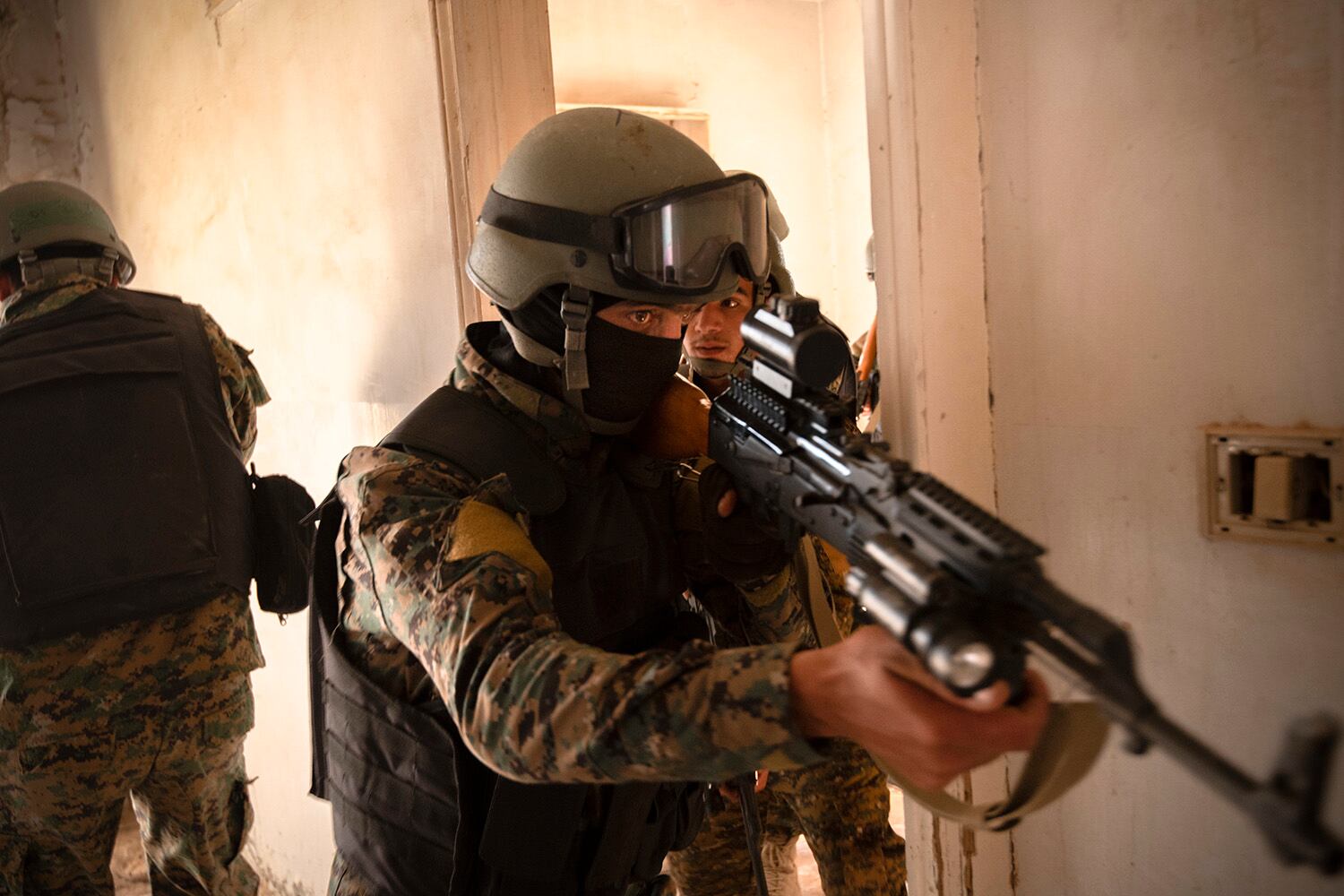They started out like the Minutemen and ended up as a seasoned fighting force that wiped out most of ISIS in Syria.
And now the Syrian Democratic Forces are fighting off a massive Turkish invasion with no assistance from the U.S. military, according to a former U.S. special operator who worked with Syrian Kurds while in uniform and now with the SDF through a non-governmental organization.
“What I understand, we have stopped any support,” said the former commando, who spoke to Military Times on the condition of anonymity to speak freely about the ongoing situation.
Officials from U.S. Central Command, which oversees military operations in the region, referred questions to the Pentagon, which did not immediately respond to this or any other recent queries about the situation in northeastern Syria.
“I am disillusioned,” said the former commando. “I am embarrassed. I am at a loss for words. Seventy-two hours ago, we were running patrols together. Everyone was waiving and continuing to clean up and watch for Daesh. Then, all of a sudden, the playground bully comes along and we ran away from our brothers, leaving them to fight the bully all by themselves.”
Prior to Tuesday’s long-promised invasion by Turkish forces, which came in the wake of President Donald Trump’s decision to pull a small cadre of commandos out of the area, the U.S. provided the SDF with a wide array of military support, the former commando said. Based on what he is hearing from his personnel on the ground, the former commando says that it appears Turkey, a NATO ally, has far exceeded its initial goal of an 18-mile buffer zone that runs in a salient south of the Turkey-Syria border.

During the course of the past three years, the SDF vastly improved as a fighting force, said the former commando. They got to the point where, accompanied by U.S. Special Forces who were training and assisting, the SDF was taking the lead on most missions other than the hunt for high-value targets. And up until Tuesday, the U.S. provided assistance ranging from intelligence, surveillance and reconnaissance, signals, image, and visual intelligence, close-air support, fire support, casualty evacuation and communications in support of the ongoing anti-ISIS mission.
After being denied U.S. assistance for the ongoing anti-ISIS mission while under attack from Turkey, the SDF have curtailed those missions to defend themselves, said the former commando.
U.S. forces, meanwhile, have left the buffer zone area and have moved south inside Syria, said the former commando. Military Times is not saying where for security reasons.
In a background briefing earlier this week, the White House said that between 50 and 150 U.S. troops were moved out of the buffer zone. On Monday, the Pentagon told Military Times there were about 1,000 total U.S. troops in Syria.
The former commando has worked with peshmerga forces in the Iraqi Kurdish region as well as Syrian Kurds since 2003 as a commando.
The Syrian Kurds, at the time were members of the People’s Protection Units, or YPG, a Kurdish militant group that now operates under the larger SDF banner.
Turkey has long complained to the U.S. of the YPG’s affiliation to the internationally designated terrorist group known as the Kurdistan Workers’ Party or PKK. Its status as a member of NATO, created with the goal of mutual assistance, has complicated the situation.
Back in 2003, the Syrian Kurds were assisting U.S. commandos on operations like seeking members of al-Qaida in Iraq who were traveling through Syria, among other missions.
Beyond wiping out most of ISIS in Syria — a battle that cost them nearly 11,000 troops, former CENTCOM commander Joseph Votel told Military Times — the former commando said the SDF have provided several other benefits to the U.S.
“I think this is completely idiotic, from a strategic aspect,” he said. “We have seized all of eastern Syria and isolated the Assad regime from the Russians and Iranians. Now we are just going to open a ground bridge between Iran and the Mediterranean. For what, because (Trump) says we are fighting other people’s wars?”
Another problem created by the Turkish invasion is that in addition to taking the heat of ISIS, the SDF says it will no longer make containing ISIS prisoners — said to number in the tens of thousands — a top priority. Their escape would add to concerns that ISIS, which has yet to be completely defeated, will have a resurgence.
The Kurds “are great soldiers, very trainable,” said the former commando. “They are probably the closest Western mentality for ethics that you could find in that region of the world.”
A fighting force that includes women, the SDF started off as a kind of national guard, said the former commando.
“They are so proud of their people and their country,” he said. “There are lawyers and engineers who have put on the uniform and fought for their country. Very much like the Minutemen of the Revolutionary War.”
Because they had so much training from the U.S., and have had to fight so much over the years, “they have become very good soldiers and know how to do mobilization operations, how to fire and maneuver and how to communicate. They understand the medical aspects.”
Despite all that, the SDF are ill-equipped to handle an advanced military, like Turkey, alone.
“All they really have is the direct fire apparatus we have given them,” said the former commando. “That’s it.”
Howard Altman is an award-winning editor and reporter who was previously the military reporter for the Tampa Bay Times and before that the Tampa Tribune, where he covered USCENTCOM, USSOCOM and SOF writ large among many other topics.





